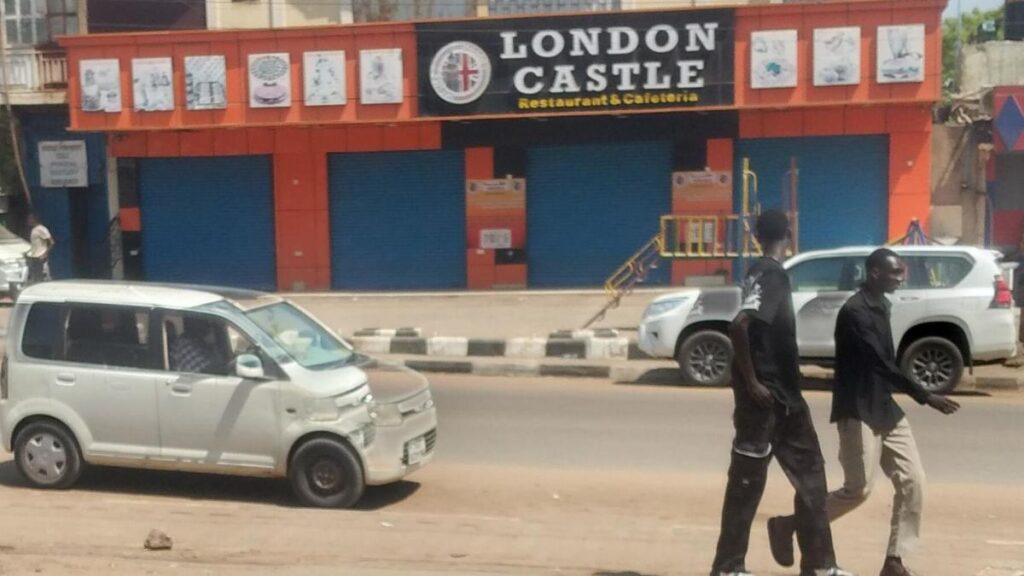South Sudan’s President Salva Kiir has called for calm and urged citizens not to take the law into their own hands, following a spate of attacks on businesses and homes owned by people from neighbouring Sudan.
Three people have been killed and seven were wounded in violent confrontations with security officers in the capital, Juba, and the north-western town of Aweil, say police. Their nationalities have not been disclosed.
Three houses belonging to Sudanese nationals were set on fire in Aweil, according to officers.
On Friday, a dusk-to-dawn curfew was announced to try to bring tensions under control.
Nobody will be allowed out on the streets between 18:00 and 06:00 local time [16:00 and 04:00 GMT] so as to “prevent any violations of public and private property,” said Insp Gen Abraham Manyuat Peter.
A second police source told the BBC that officers rescued 45 Sudanese traders in Juba who are now receiving protection at a police station.
South Sudan broke away from Sudan to form an independent country in 2011 after a long-running civil war, but more recently, growing numbers of Sudanese people are fleeing into South Sudan to escape the latest conflict.
Sudan has become the world’s worst humanitarian crisis since the country’s warring generals first turned on each other in April 2023. Half of the population – roughly 25 million people – are in dire need of food and aid, says the UN.
Recent footage showing alleged Sudan soldiers killing South Sudanese civilians appears to show Wad Madani city, the capital of Gezira State in central Sudan within the past few days.
President Salva Kiir of South Sudan said what happened in Wad Madani was a heinous and “unacceptable” crime. He urged Sudan’s government to protect South Sudanese citizens trapped there, and to investigate the killings with the help of international humanitarian organisations.
Rights groups confirmed that at least 13 – including some children – were killed there because of their ethnicity. The Sudanese army says it has ordered an investigation into the reports.
Darker-skinned people say that racism is endemic in Sudan, and targeted attacks on these communities by lighter-skinned Arab fighters happening today in places such as Gezira and Darfur have a long precedent.
Slave raids were widely reported to have continued until the end of the civil war in 2005, which led to the mainly black African South Sudan seceding from Arabic-speaking Sudan six years later.
The events shown in the viral videos have been condemned by South Sudanese people in the country and abroad in the diaspora.
Incensed by what they saw in the clips and wanting to retaliate, hundreds of young men attacked Sudanese-owned businesses in Juba and other parts of South Sudan on Thursday.
Gunshots were heard throughout the night as security forces patrolled.
The BBC witnessed dozens of young men – mainly in their 20s – running as they were being chased by police along Tambura road, which is one of the busiest streets in Juba’s Atlabara suburbs.
On Friday shops and businesses in Juba including the country’s biggest market, Konyo Konyo, remain closed. Restaurants and cafeterias have also been locked up as owners take precautionary measures.
Bread prices shot up by as much as 17% in Juba on Friday at the few local bakeries that opened.
Police continue to chase young men who are moving from one neighbourhood to the next, targeting Sudanese residents. Dozens of police have been deployed to protect Sudanese people and their businesses in the Atalabara C suburbs and others, the BBC understands.
We saw a police vehicle round up and take away a group of young men.
Eyewitnesses in Wau, the country’s second largest city, told the BBC by phone on Friday that hundreds of infuriated youths had attacked Souk Jaw, a popular market, which has many Sudanese-owned businesses owned.
They also attempted to loot a number of shops, but the police fired rounds of live bullets in air to disperse them.
Elsewhere, spontaneous demonstrations reportedly broke out in Tonj town in Warrap, the home state of President Salva Kiir on Friday.
The BBC could not independently verify the claims of the attacks and looting that occurred in areas outside Juba.
More BBC stories from Sudan and South Sudan:
[Getty Images/BBC]
Go to BBCAfrica.com for more news from the African continent.
Follow us on Twitter @BBCAfrica, on Facebook at BBC Africa or on Instagram at bbcafrica
BBC Africa podcasts
Read the full article here
